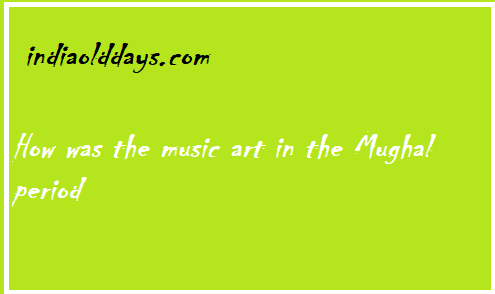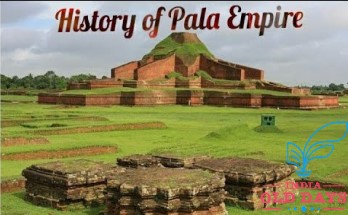Administrative System of the Mughals: Central Government

Other Important Facts-
- What were the major events of Akbar’s period?
- Religious policy of Shah Jahan
- Mughal period revenue theory
revenue theory of the Mughals-
Origin of the revenue theory of the Mughals was the Shariat (the common name of the Quran and hadith).
Babur, while expressing the views of the state, said that there is no obligation to increase from the kingdom. Loneliness or lazy life is not justified for the king.
Babur also freed the Mughal emperors from the nominal possession of the Khalifah by assuming the title of the emperor. Now they are no longer subject to any foreign power or person.
Humayun believed the emperor to be representative of God on the earth. According to him, the emperor protects his subjects in the same way as God protects all the creatures of the earth.
Abul Fazl has explained the principle of Mughal Principle of Akbar in Ain-Akbari.
Abul Fazl has written while describing Akbar’s reign in the kingdom: It is the grace of God that is the person who receives thousands of qualities together.
According to Abul Fazl, the royalist is the Divine and the World Publisher is a ray of the sun.
Akbar considered the monarchy above religion and sect and adopted a policy of reconciliation in place of the Orthodox Islamic doctrine. While Aurangzeb made the monarch the successor of Islam.
Although Aurangzeb was an observer of Hanif ideology of traditional Muslim law in India, he did not hesitate in issuing secular laws (jurists) such as Jabavit. Because Jabavit was theoretically complementary of Sharia.
The Mughal emperors undoubtedly regarded the two duties of the emperor- jaha Bani (the defense of the state) and Jahangiri (rights on other states).
According to the principle of Abul Fazl who supported it, the Emperor is the representative of God and the Messenger of God on earth, and God has given him more wisdom and discretion than ordinary human.
Nature of Mughal Administration (Central Government) –
The Mughal rule was a central system based on military power, which was based on control and balance.
The Mughal administration was a mixture of Indian and non-Indian (foreign) elements. In other words, it was an Arabic-Persian method in the Indian background.
The division of authority in the Mughal carpet administration was based on the system adopted by the rulers of Egypt between the Subedar and Diwan; there were two methods of the revenue system – the oldest – the result of the Arabic theories. manasabadari system– which were eclipsed from Central Asia.
Since the Mughal Empire was fully centralized, the power of the king was infinite. Yet there was a council of ministers to run the activities of the administration.
The word ‘Vijārata‘ has been used for the Council of Ministers.
Wazir (Lawyer) –
In the time of Babur and Humayun, the position of the Wazir was very important. It was the prime minister of the empire. It received unlimited rights in both military and civilian affairs. During Mughal period, the Mughal Prime Minister was called to be called a lawyer.
In the early years of Akbar’s reign, Bairam Khan abused his rights as a lawyer.
Therefore Akbar established Dewan-e-Vajrat-i-Aul, a new post for the 8th year of his reign after the fall of Bairam Khan. Which was given the right to manage revenue and financial matters.
Gradually, Akbar ended the monopoly of the lawyer and divided his rights – Deewan, Mirbakshi and Mir-sah and Sadr–far. From then on, this post was the only honor post which continued till the time of Shah Jahan .
There were only four council councils in the time of Akbar- lawyer, Diwan (or Wazir) Mir Bakshi and sadr-us-sudoor.
Minister-
The word Diwan is the original Persian word. The establishment of this post was done by Akbar in the 8th year of his rule to end the monopoly of the lawyer. It was also called a wazer. It was the highest official of finance and revenue.
It was also influenced by all other departments other than finance and revenue. In the absence of the emperor, he used to see the ordinary tasks of governance from the King’s side. In this way, he was in a manner similar to the emperor and the remaining officers.
Dewan also did not become as powerful as a lawyer, so Akbar transferred him.
The Mughal emperors used to appoint these officers on merit, not on military qualifications.
In the period of Mughal emperors – Mujaffar Khun Turabati, King Todarmal, Ewajshah Mansur (all Akbar carpet), Atmududaula (Jahangir), Sadullah Khan (Shahjahan carpet) and Asad Khan (Aurangzeb carpet) were well versed.
Despite being the finance minister, Dewan could not afford wealth and fiefdom with his will. But he was the central officer of Khalsa, manor and reward land.
There were many other officials for the help of Diwan- Diwana Khalsa (the caretaker of the royal land), Diwan-i-Tan (custodian of the wages and carers), Maltafi (inspector of income expenditure) and Mushrif.
Meer Bakshi-
Meer Bakshi was the highest official of the military department. The development of this post started in the era of Akbar.
Major activities of Meer Bakshi – Recruitment of soldiers, maintenance of their guard, logistics management, discipline in the army, arms and elephants for soldiers and management of elephants. In addition, he also took responsibility for the protection of the royal palace.
Even though he was a military minister in the Mughal period, he was neither a senator nor a permanent wage officer.
Mirbakshi did not have any right to distribute the salary to the rest of the army except during the war; generally this right was for the junkie-tan.
Only after the signing of a letter written by Meer Bakshi, the monthly salary of the army was determined.
No number of spellings was fixed in the Mughal period. Due to the expansion of the Mughal Empire in the last phase of Aurangzeb’s reign, it was possible to appoint 4 bakhisis.
Meerbakhshi was self-reliant in a high class and was responsible for running the Manashbari system smoothly.
Meer Bakshi’s two other assistants – Bakshi-Huzur and Bakshi-Shahibid were occupied.
In the provinces, Vakyanivis gave direct information to Mir Bakshi.
Meer-e-Sama-
Akbar also established this department during his reign.
Meer-e-Sama was the head of domestic affairs. He used to fulfill the family, palace and daily needs of the emperor. This post was given to a very trusted person.
Meer-e-Sama had independent charge of the organization and management of factories under the empire. The other officers under him were: Deeway-Begum, Mushrif, Dorda, and Tahawildar.
Meer-e-Sama did not have a ministerial post during Akbar’s time. But later it was made a minister and it became so important that it was considered to be the last step of getting the post of Wazir.
All important and confidential tasks of Interpol were done at the hands of the daroga.
is said to be the officer of expenditure in Dastur-ul-Amal.
By the time of Shah Jahan this officer was called meeir-e-Sama. But in the time of Aurangzeb, it started to be called khaane-sama.
sadr-us-sudoor (Sadr-e-Kul) –
It was advisor to the king in religious matters. His main work- arranging charity, arranging religious education, providing scholarly tax-free land and stipends and proper arrangement to follow Islamic laws.
Sadr-us-sudoor was also known as Sheikh-ul-Islam.
Sadr-us-sudoor was given the rank of 2 Chief Kaji.
That is when he used to act as head of the justice department, he was called Kaji-ul-Quzah.
In Akbar’s time most of the post was given to a separate person.
Sadr – that- cared for free tax-free land given to religious persons, scholars and nobles by the eminent rulers or princes, and also decides the laws related to it.
In the time of Akbar, the importance of the post of Sadar was reduced because Akbar did not accept his salute in religious matters. Rather he had taken the right to give the jagirs and stipends himself.
By the rule of Jahangir, the office of the Sadar had lost most of its influence. Later, this position could never be received from that respect and authority.
Unlike other officers of Mughal times, Sadr was not transferred.
Wages and tax-free land were termed as Suoragal or madad-e-maash, which was given by the Sadar for the grant of livelihood.
1578 AD In the provinces, the Sadar was appointed, which ended the monopoly of the Central Sadr.
Generally the man was given tax-free land in lieu of his salary. They were not emotional. But there are some examples when they were given mashab. For example, in the time of Akbar, Sadra-where Akbar had two thousand Manasab and Jahangir gave him four thousand and later five thousand men.
Similarly, during the time of Shah Jahan, Aurangzeb had given a fortune of six thousand to the mausabi khan to Manasab three thousand and Syed Jalal.
The earliest of the Mughal period was Sheikhkhadai, which was built by Bairam Khan during his protection period. During his reign, during his reign, Dharmapura (for Hindus) JogiPura (for jogiyo) and Khairpura (Muslims and others) to give free food to the poor and orphans. ) And the responsibility of the supervision of Abul Fazl.
Other high officials-
Muhtsab (public conduct controller) – Aurangzeb appointed veterans for taking care of the moral character of the people.
The main task of the Muhtasibbans was to prevent those who work against the opponents of Shariat and save the general public from the tragedy. But sometimes 2 was responsible for taking care of the scale of measurement and determining the values of objects.
In the time of Aurangzeb, the responsibility of breaking Hindu temples and schools was entrusted to the saints.
Main Kaji (Qazi-ul-Qunat) –
5The Mughal emperors could not decide all the lawsuits themselves, so he appointed a ChiefKazi (Chief Justice) in the capital, who judged according to Muslim law.
Mufti was appointed to assist the Chief Kazi, who used to explain the law and on the basis of which the main decision was made.
Reference : https://www.indiaolddays.com/





